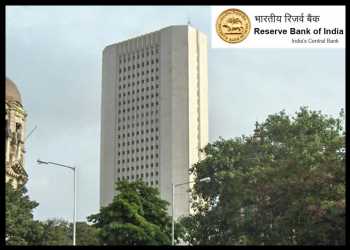India Central Bank Holds Rates Steady
The Reserve Bank of India left its benchmark interest rates unchanged, as widely expected, while surging food prices forced policymakers to turn hawkish.
After the three-day Monetary Policy Committee meeting, RBI Governor Shaktikanta Das on Thursday said policymakers unanimously decided to keep the policy repo rate unchanged at 6.50 percent with preparedness to act, should the situation so warrant. The status quo decision was unanimous.
The standing deposit facility rate was maintained at 6.25 percent. The marginal standing facility rate and the Bank Rate, both were retained at 6.75 percent.
The RBI has lifted the benchmark rate by 250 basis points since May 2022.
“The MPC also decided by a majority of 5 out of 6 members to remain focused on withdrawal of accommodation to ensure that inflation progressively aligns with the target, while supporting growth,” Das said.
The RBI said banks should maintain an incremental cash reserve ratio of 10 percent in order to absorb the surplus liquidity generated following the withdrawal of INR 2000 banknotes.
This is only a temporary measure for managing the liquidity overhang. The existing cash reserve ratio remained unchanged at 4.5 percent, Das said.
Consumer price inflation rose to 4.8 percent in June from 4.3 percent in May on the back of higher food prices. Going forward, the increase in vegetable prices would exert sizeable upside pressure on the near-term headline inflation trajectory, the bank observed.
The central bank upgraded its inflation outlook for the current financial year to 5.4 percent from 5.1 percent.
Underpinned by private consumption and investment, the economy is forecast to grow 6.5 percent in 2023-24. This was unchanged from the previous projection.
ING economist Robert Carnell said inflation will peak in August at over 8.5 percent before drifting back down through the end of the year. Although this is unlikely to require any offsetting monetary policy action, it may make it harder for policymakers to begin easing rates earlier, the economist added.
Although the central bank is unlikely to restart the rate hiking cycle, there is a significant risk of the easing cycle that is expected to begin in the first quarter getting pushed back into the middle of next year, Capital Economics’ economist Shilan Shah said.
Source: Read Full Article

